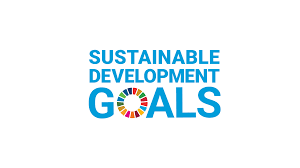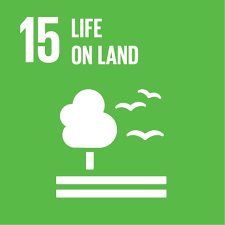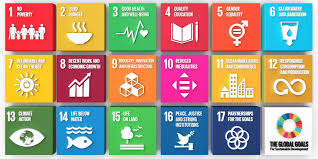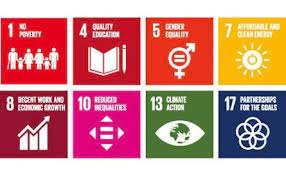The UN Sustainable Development Goals: A Global Call to Action
Since their adoption in 2015, the United Nations Sustainable Development Goals (SDGs) have served as a universal call to action to end poverty, protect the planet, and ensure prosperity for all. Comprising 17 interconnected goals, the SDGs aim to address pressing global challenges and build a more sustainable future for generations to come.
The Scope of the SDGs
The SDGs cover a wide range of critical issues, including eradicating poverty and hunger, promoting quality education and gender equality, ensuring access to clean water and affordable clean energy, fostering sustainable cities and communities, combating climate change, and preserving life below water and on land. Each goal is interconnected with the others, emphasizing the need for a holistic approach to sustainable development.
Progress and Challenges
While significant progress has been made in some areas since the establishment of the SDGs, challenges persist. Inequalities within and among countries remain widespread, environmental degradation continues at an alarming rate, and climate change poses a growing threat to communities worldwide. Achieving the SDGs by 2030 requires accelerated action and collaboration at local, national, and global levels.
The Role of Individuals and Organizations
Every individual has a role to play in advancing the SDGs. Whether through sustainable consumption habits, advocacy for social justice issues, or support for local community initiatives, individuals can contribute to the collective effort towards achieving the goals. Similarly, businesses, governments, non-profit organizations, and academia play crucial roles in driving progress towards sustainable development through innovation, policy-making, partnerships, and research.
A Call to Action
As we approach the halfway mark towards the 2030 deadline for achieving the SDGs, it is essential for stakeholders across sectors to recommit themselves to this ambitious agenda. By aligning strategies with the principles of sustainability and inclusivity outlined in the SDGs, we can create a more equitable world where no one is left behind.
Together, we have the power to transform our societies and safeguard our planet for future generations. The time to act is now.
8 Practical Ways to Support the UN Sustainable Development Goals
- Educate yourself about the UN Sustainable Development Goals (SDGs).
- Spread awareness about the importance of achieving the SDGs.
- Support businesses and organizations that are committed to sustainable practices.
- Reduce your carbon footprint by using public transportation, biking, or carpooling.
- Conserve energy at home by turning off lights and unplugging devices when not in use.
- Practice sustainable consumption by buying products with minimal packaging and from ethical sources.
- Get involved in local community initiatives that promote sustainability and social responsibility.
- Advocate for policies that prioritize environmental protection, social equality, and economic development.
Educate yourself about the UN Sustainable Development Goals (SDGs).
Understanding the UN Sustainable Development Goals (SDGs) is crucial for anyone looking to make a positive impact on the world. By educating yourself about the SDGs, you gain insight into the interconnected global challenges we face and the pathways to a more sustainable future. Take the time to familiarize yourself with each goal, its targets, and the role individuals and organizations can play in achieving them. Empowered with this knowledge, you can actively contribute to advancing the SDGs and creating a more equitable and prosperous world for all.
Spread awareness about the importance of achieving the SDGs.
It is crucial to spread awareness about the importance of achieving the United Nations Sustainable Development Goals (SDGs) in order to mobilize individuals, communities, and organizations towards collective action. By raising awareness about the interconnected nature of the SDGs and their significance in addressing global challenges, we can inspire people to take meaningful steps towards sustainable development. Through education, advocacy, and communication efforts, we can foster a sense of responsibility and empowerment that drives positive change and progress towards a more equitable and sustainable future for all.
Support businesses and organizations that are committed to sustainable practices.
Supporting businesses and organizations that are committed to sustainable practices is a crucial step in advancing the UN Sustainable Development Goals. By choosing to patronize companies that prioritize environmental stewardship, social responsibility, and ethical practices, individuals can contribute to a more sustainable future. These businesses play a key role in driving innovation, promoting sustainable consumption patterns, and fostering positive social impact. Through conscious consumer choices and partnerships with sustainability-focused entities, we can collectively work towards achieving the SDGs and building a more resilient and equitable world for all.
Reduce your carbon footprint by using public transportation, biking, or carpooling.
One effective way to contribute to the United Nations Sustainable Development Goals is by reducing your carbon footprint through sustainable transportation practices. By opting for public transportation, biking, or carpooling instead of driving alone, you can significantly decrease greenhouse gas emissions and promote a cleaner environment. Making conscious choices about how you travel not only helps combat climate change but also supports the goal of creating sustainable cities and communities outlined in the SDGs.
Conserve energy at home by turning off lights and unplugging devices when not in use.
One simple yet impactful way to contribute to the United Nations Sustainable Development Goals is by conserving energy at home. By making a conscious effort to turn off lights and unplug devices when not in use, individuals can reduce their carbon footprint and promote energy efficiency. This small lifestyle change not only helps in achieving the goal of ensuring access to affordable and clean energy (SDG 7) but also contributes to combating climate change (SDG 13) by lowering greenhouse gas emissions. Every action counts towards building a more sustainable future for all.
Practice sustainable consumption by buying products with minimal packaging and from ethical sources.
One effective way to contribute to the United Nations Sustainable Development Goals is to practice sustainable consumption by consciously choosing products with minimal packaging and from ethical sources. By opting for goods that are produced and distributed in environmentally and socially responsible ways, individuals can reduce their ecological footprint and support businesses that prioritize sustainability. This simple yet impactful choice aligns with the goal of promoting responsible consumption and production, ultimately contributing to a more sustainable future for all.
Get involved in local community initiatives that promote sustainability and social responsibility.
By getting involved in local community initiatives that promote sustainability and social responsibility, individuals can play a direct role in advancing the UN Sustainable Development Goals. These initiatives often focus on grassroots efforts to address environmental issues, promote equitable access to resources, and foster a sense of community empowerment. Whether through volunteering, participating in advocacy campaigns, or supporting sustainable businesses, individuals can contribute to building a more resilient and inclusive society that aligns with the principles of the SDGs.
Advocate for policies that prioritize environmental protection, social equality, and economic development.
Advocating for policies that prioritize environmental protection, social equality, and economic development is crucial in advancing the UN Sustainable Development Goals. By pushing for legislation and initiatives that address these interconnected aspects of sustainable development, we can create a more balanced and resilient society. Environmental protection ensures the health of our planet for future generations, social equality promotes inclusivity and justice for all members of society, and economic development fosters prosperity and stability. By advocating for holistic policies that consider the well-being of people and the planet, we can work towards a more sustainable and equitable world.





